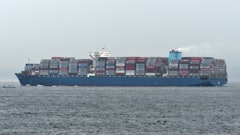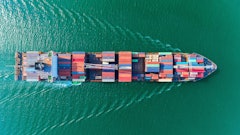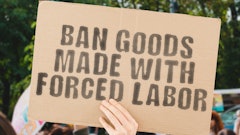April 03--The sweeping federal indictment contained allegations all too familiar in Chicago, from greasing politicians with bribes in exchange for business licenses to disguising the payments as legitimate expenses and using threats and coercion to cover it all up.
But this time, the charges didn't involve a few thousand dollars stuffed in an envelope and passed under a restaurant table. And there wasn't even a local alderman or governor caught in the mix.
Instead, federal authorities announced that billionaire Ukrainian industrialist Dmytro Firtash and five other foreign nationals have been charged in Chicago with participating in an international racketeering conspiracy involving at least $18.5 million in bribes to government officials in India to allow the mining of titanium minerals.
What localized the alleged scheme, authorities said, was a plan to sell millions of pounds of the minerals to Chicago-based Boeing Co., which was identified in the indictment only as "Company A." Boeing has not been charged with any wrongdoing.
On its face it might seem strange that federal prosecutors would have much of a stake in going after Ukrainians for allegedly bribing officials in India, especially when no immediate harm was alleged to anyone in the Chicago area.
But experts say the global reach of the charges -- which were brought after an extensive international investigation of the Firtash-controlled conglomerate Group DF -- is an indication of how money and business operate largely without borders in today's world, making financial crimes that stretch over many nations complex and difficult to track.
"This is a very large case...It takes an international team to investigate a scheme like this," said Juliet Sorensen, a Northwestern University School of Law professor and former federal prosecutor in Chicago. "The fact of the matter is companies that are the size and the scope of Group DF and (Boeing) do international business every day that may touch on the U.S. but also touch India, Austria or elsewhere."
Sorensen said the involvement of a Chicago-based company was key in bringing the charges under the Foreign Corrupt Practices Act, which gives the U.S. jurisdiction over a scheme that allegedly took place largely overseas.
U.S. Attorney Zachary Fardon said Wednesday his office will "use all the tools and resources" available to ensure the integrity of global business transactions that involve U.S. commerce.
"Criminal conspiracies that extend beyond our borders are not beyond our reach," Fardon said in a statement.
Firtash, 48, one of Ukraine's most influential oligarchs, was arrested at the request of the FBI last month in Vienna and released a week later after posting a nearly $174 million bond. He has been ordered to stay in Austria as U.S. prosecutors seek to have him extradited to Chicago to face the charges -- a process that could take months.
Firtash, who has long allied himself with leaders friendly to Russian President Vladimir Putin, was arrested amid the political upheaval in Ukraine that has led to Russia's seizure of the Crimean Peninsula. Prosecutors, though, said the charges were filed under seal last June in Chicago and have nothing to do with recent events in Ukraine.
After the charges were announced, Group DF released a statement calling Firtash's arrest "an abuse of the Austrian justice system for ulterior political motives."
"There is no truth to the accusations," Deputy Chairman Robert Shetler-Jones said in the statement. "It is not a coincidence that the U.S. is trying to extradite our chairman at the moment when Mr. Firtash is needed for the economic and political reconstruction of Ukraine."
The five other defendants remain at large. They include K.V.P. Ramachandra Rao, 65, a well-connected member of parliament in India; Hungarian businessman and longtime Firtash associate Andras Knopp, 75; Suren Gevorgyan, 40, of Ukraine; Gajendra Lal, 50, an Indian national who recently had lived in North Carolina; and Periyasamy Sunderalingham, 60, of Sri Lanka.
The indictment alleged that beginning in 2006 the defendants conspired to pay at least $18.5 million in bribes to secure licenses to mine minerals in the eastern coastal Indian state of Andhra Pradesh, where Rao was a government official and close advisor to the now-deceased chief minister of the state. The mining project was expected to generate more than $500 million annually from the sale of titanium products, including sales to "Company A."
According to the indictment, Company A sought to enter into a supply agreement in which one of Firtash's businesses would sell the company up to 12 million pounds of titanium sponge -- a porous form of the metal -- a year from the mining operation in India. Firtash used his business reputation, financial resources as well as "threats and intimidation" to orchestrate and conceal a bribery scheme involving Indian officials who needed to approve licenses before the mining could take place, the charges alleged.
Knopp, who along with Firtash met with Indian government officials about the plan, also met with Company A representatives to discuss supplying titanium products from the project, according to the charges. In 2006 and 2007, Gevorgyan allegedly traveled to Seattle and met with Company A representatives.
Use of titanium and its alloys has skyrocketed in the aerospace industry over the last several decades because of its superior durability and lighter weight compared to other metals such as aluminum and steel. According to Boeing's web site, its popular Dreamliner 787 series of jets are made of 15 percent titanium -- or as much as 100,000 pounds of titanium per plane.
Boeing said in a statement Wednesday it signed a "memorandum of understanding" with Firtash-owned Bothli Trade in 2006 "to conduct a feasibility study on the potential for sourcing titanium sponge...at a time of short supply of the material."
Boeing never pursued the plan because "supply became more plentiful" and the agreement with Bothli lapsed, according to the statement. Boeing said it has never done any other business with Bothli, which is based in Switzerland.
All six defendants were charged with racketeering conspiracy, money laundering conspiracy and interstate travel in aid of racketeering. All but Rao were also charged with one count of conspiracy to violate the federal Foreign Corrupt Practices Act. The most serious charges carry maximum penalties of 20 years in prison on each count.
The indictment seeks forfeiture from Firtash of all interests in Group DF and its assets, including 14 companies registered in Austria, 18 companies in the British Virgin Islands and more than 100 other businesses from Cyprus to Switzerland. The indictment also seeks the forfeiture from all six defendants of almost $10.6 million -- the amount of bribes actually doled out.
Sorensen said the way the investigation unfolded makes clear the difficulties of international prosecutions. Although he was indicted more than nine months ago, Firtash was not arrested until officials had confirmed he'd stepped foot in Austria, which has a strong extradition treaty with the U.S. While Austrian courts will likely order Firtash to be turned over to the U.S. -- provided he doesn't jump bail -- the road to bringing the rest of the defendants to justice could be much bumpier, Sorensen said.
"I'd say it's somewhat unlikely that India will agree to extradite a member of its own parliament," Sorensen said.
Born to a blue-collar family in western Ukraine, the controversial Firtash rose to become the head of a business empire that includes a half-stake in RosUkrEnergo, a giant gas transport firm that delivers gas to large swaths of Europe. As his prominence rose, Firtash became known for his debonair style as well as his philanthropic works and promotion of Ukrainian arts.
Firtash has long publicly denied rumors of his alleged ties to Russian organized crime. However, in a cable leaked by former National Security Agency analyst Edward Snowden and posted on WikiLeaks, the U.S. ambassador to Ukraine described a 2008 meeting in which Firtash allegedly acknowledged ties to Seymon Mogilevich, believed to be the boss of the Russian Mafia and one of the FBIs 10 most wanted men in the world.
According to the cable, Firtash told the ambassador he'd dealt with Mogilevich out of necessity because in the aftermath of the collapse of the Soviet Union, the Ukraine was ruled by "the laws of the streets."
"He noted that it was impossible to approach a government official for any reason without also meeting with an organized crime member at the same time," the ambassador's memo said.
Copyright 2014 - Chicago Tribune


























